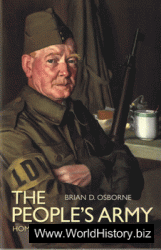European relations with the rest of the world used to be studied separately from Europe itself, as what was termed "overseas history" or "colonial history" that was affected by, but did not influence, developments in Europe. Studies of individual colonies and of Europe by itself have certainly continued, but it has become increasingly clear that the histories of Europe and its colonies - colonies and "metropole" are the common terms - are completely intertwined. Relations between Europeans and non-Europeans were not simply discoveries or conquests (though they were both of these), but cross-cultural encounters involving exchanges of people, material goods, and ideas, and they began in classical or even prehistoric times. This recognition of global interconnections has come in an era when most former European colonies have become independent states, so this more integrative approach is often termed "post-colonial." The Italian political theorist Antonio Gramsci has been especially important in post-colonial studies, particularly in his notions of "hegemony" and "subaltern." Hegemony means the control or domination of one person or group or nation over another, but Gramsci emphasizes that this is often achieved by granting special powers and privileges to some individuals and groups from among the subordinated population, or by persuading them that the new system is beneficial or preferable. This can explain why small groups of people have been able to maintain control over much larger populations without constant rebellion and protest. "Hegemony" is now used to discuss many
Types of hierarchical relations, though some scholars also note that emphasizing hegemony downplays the ability of subjugated peoples to recognize the power realities in which they are enmeshed and shape their own destiny. "Subaltern" refers to people who have been subordinated by their race, class, culture, gender, or language as part of the process of colonization and imperialism. Colonies contain many different subaltern groups, but so do the colonizing countries, and insights drawn from subaltern studies are now being applied to the study of "subaltern" groups such as racial and ethnic minorities in Europe and the United States.
Just as the study of colonies and metropole is increasingly linked, so is that of various countries and regions within Europe and in parts of the world that were never colonized. Many historians emphasize that a number of political, economic, and social phenomena cut across borders, and that no one region or country should be studied in isolation.
A better approach, they note, is one that is "transnational," focusing on connections, exchanges, intercrossings, movements, and mixtures. Areas along the developing political, linguistic, and religious boundaries of early modern Europe are increasingly being studied as "transnational" borderlands, although some scholars wonder whether the concept "transnational" is really applicable to this era, when most national boundaries were not yet firmly fixed.
Whether they use the term "transnational" or not, over the past several decades a number
Of historians of the early modern period have increasingly defined their geographic area of focus not as a single nation or region, but as the "Atlantic world." This Atlantic history, championed by Bernard Bailyn, Jack Greene, and others, developed to some degree because of political circumstances after World War II that linked North America more closely with Europe. (The same circumstances led to the founding of the North Atlantic Treaty Organization - NATO.) More importantly, however, scholars increasingly found that telling the story of the lands that bordered the Atlantic and the islands that were situated in it separately was not as interesting as telling a story that
Tied them together. Atlantic history examines connections and comparisons, and has paid particular attention to certain topics, including voluntary and forced migrations, pan-Atlantic commerce, the spread and hybridization of ideas, and racial and ethnic relations. It initially focused more on Europeans, but has increasingly emphasized the role of Africans and peoples indigenous to the Americas. Some Atlantic historians have seen other regional approaches, such as hemispheric, transnational, or continental history, along with world and global history, as competition to Atlantic history, while others have viewed all of these as complementary.




 World History
World History









